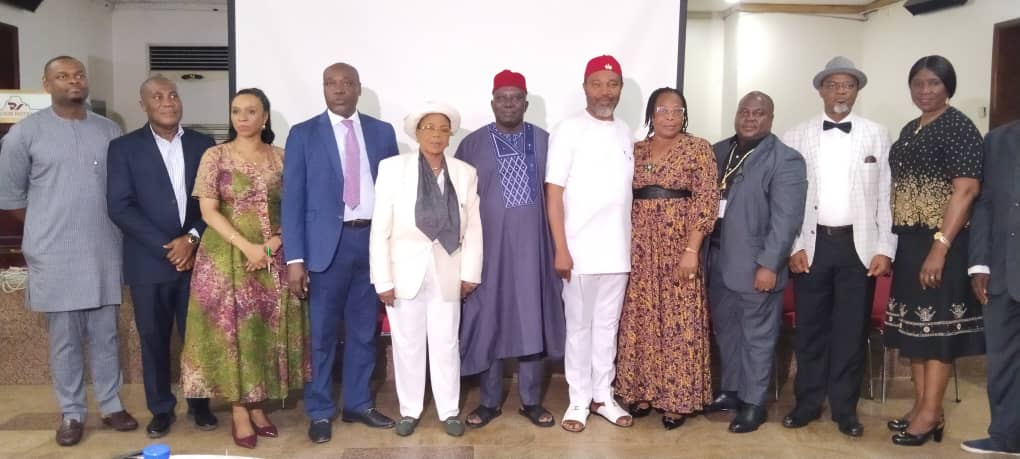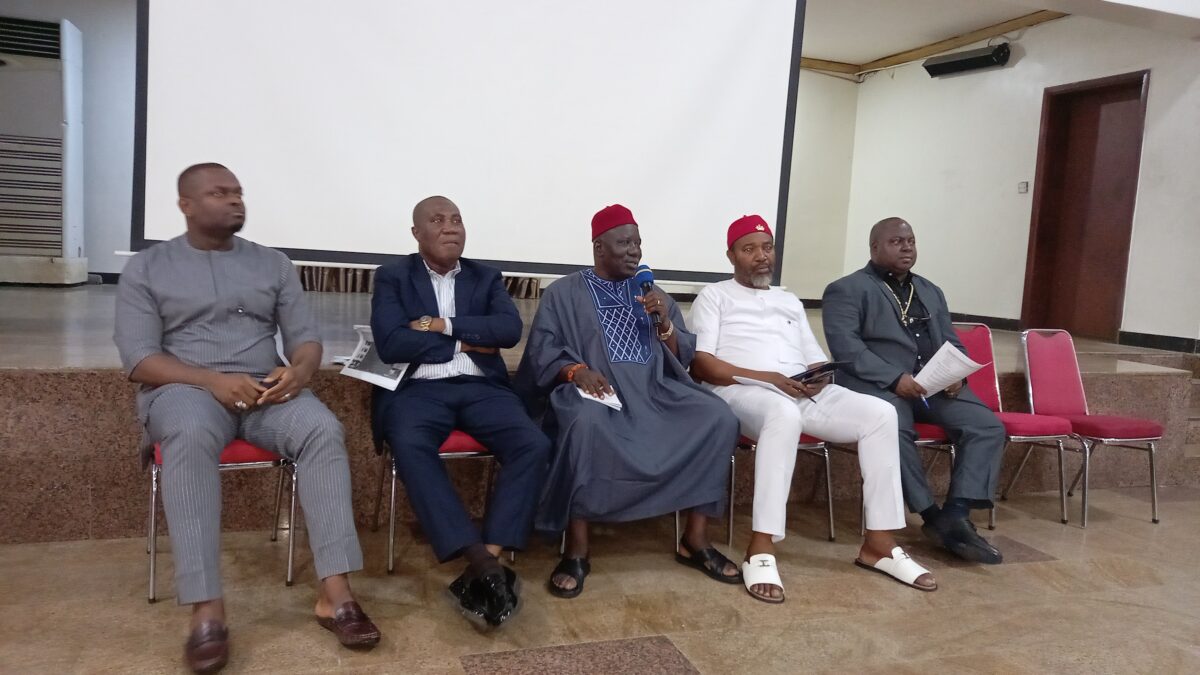
In a bid to further protect the rights of consumers in the Nigerian port system, the Nigerian Shippers’ Council (NSC) has collaborated with the Federal Competition and Consumer Protection Council (FCCPC) to facilitate a Consumer Protection Regime (CPR) in the shipping and ports sector in Nigeria.
This announcement was made during a sensitisation programme for stakeholders on consumer rights and responsibilities in the port and shipping sector, which was jointly organized by NSC and FCCPC in Lagos on Tuesday.
Speaking in his welcome address, the Executive Secretary of NSC, Emmanuel Jime stated that the maiden sensitization programme is aimed at enlightening maritime stakeholders of their rights and responsibilities in the course of carrying out their activities at the ports.
Jime, who was represented by the NSC Director of Human Resources, Mrs Adaku Okam informed that the Council in January 2022 signed a Memorandum of Understanding (MOU) with FCCPC to work together on specific areas of concern of both agencies in the shipping and ports industry.
The idea behind the MoU was to bring sanity in the conduct of shipping and ports business to ensure harmony, fair trade practices and efficiency in the sector.
According to Jime, the MoU is set to achieve an effective collaboration in the protection of providers and consumers of shipping and ports services with a view to establishing a Consumer Protection Regime (CPR) in the shipping and ports sector in Nigeria.
Specifically, he disclosed that the CPR, when instituted, will address infringements by service providers and users in the industry as well as enthrone sanity and fair-trade practices in the system.
While reinstating NSC’s commitment to remain fair, neutral, unbiased, and provide a level playing field in its capacity as the port economic regulator, the Executive Secretary added that there are plans to conduct sensitization exercises at various ports and inland locations in order to get necessary inputs from stakeholders on how the industry can operate seamlessly with little or no infringement on rights of users and providers of shipping and port services.
He said: “We plan to conduct sensitization exercises at various port and inland locations to get necessary inputs from stakeholders on how the industry can operate seamlessly with little or no infringement on rights of users and providers of shipping and port services.
“This is to ensure that all stakeholders are carried along in the process of developing the CPR so as to build trust and confidence before rolling out the scheme. As we are all aware, the shipping industry comprises various players who in the course of daily transactions are bound to trample and infringe on each other’s rights.
“Let me use this opportunity to express the commitment of the NSC to remain fair, neutral, unbiased, and provide a level playing field in our capacity as the port economic regulator. We shall remain open to consultation and will ensure that critical decisions in the port and shipping sector are arrived at by consensus opinion of stakeholders” Jime concluded.
On his part, the Executive Vice Chairman of FCCPC, Mr Babatunde Irukera stressed the importance of protection of consumers’ rights in the shipping and port system, adding that it is pivotal to the effectiveness and development of the nation’s economy.
Irukera who was represented by the Director, Legal Services FCCPC, Mr. Tam Tamunokobia, commended the Executive Secretary and the Council for the collaboration. He stressed that collaboration would gender effective co-existence between both agencies adding that consumers has a lot to benefit from the collaboration.
“We must ensure that the consumer is protected. The issue of consumers should be uppermost in our minds. Secondly, to that effect, we need to choose a frontier of our cooperation and collaboration.
“I have looked at the Shippers’ Council Act, I have looked at our Act and in both cases, collaboration is needed and highlighted. Where there is effective collaboration, there is no room for fighting, when we collaborate, the consumers will be the beneficiaries”, Irukera noted.

The Director of Programme, Convention on Business Integrity (CBi) Mr Emmanuel Bosah in his presentation hinted on importance the enforcement of the Standard Operating Procedures (SOPs) by the NSC for effective service delivery. He noted that Service providers in the private sector, such as shipping companies must equally introduce transparent SOPs that make clear charges, timelines, and procedures, without compromising their trade secrets.
Bosah also informed that the introduction of a technology-based grievance reporting mechanism in the form of the Port Service Support Portal (PSSP) and the Help Desk operated by the Maritime Anti-Corruption Network, under the current port reform initiative, has empowered port users to report incidences of corrupt demands by port officials in real-time and receive timely resolution of complaints.
“The port sector would greatly benefit from the institution of a consequence management framework that provides incentives that promote accountability, ethical decision making, and serves as a deterrence to deviances from SOPs”, Bosah noted.
Also speaking, the Managing Director of MSC Shipping, Mr Andrew Lynch noted that the five major consumers rights include the rights to be informed, right to choose, right to consumer education, right to seek redress, right to fair dealings and to be heard.
Andrew Lynch who was represented by the MSC Head of Customers Service for Import and Export, Olumide Adefisan also stated the responsibilities of consumers, stressing that all consumers in the port and shipping industry should be honest with all their provided information and make honest declarations in order to build and sustain integrity in the maritime sector.
Follow us on Facebook/ twitter















